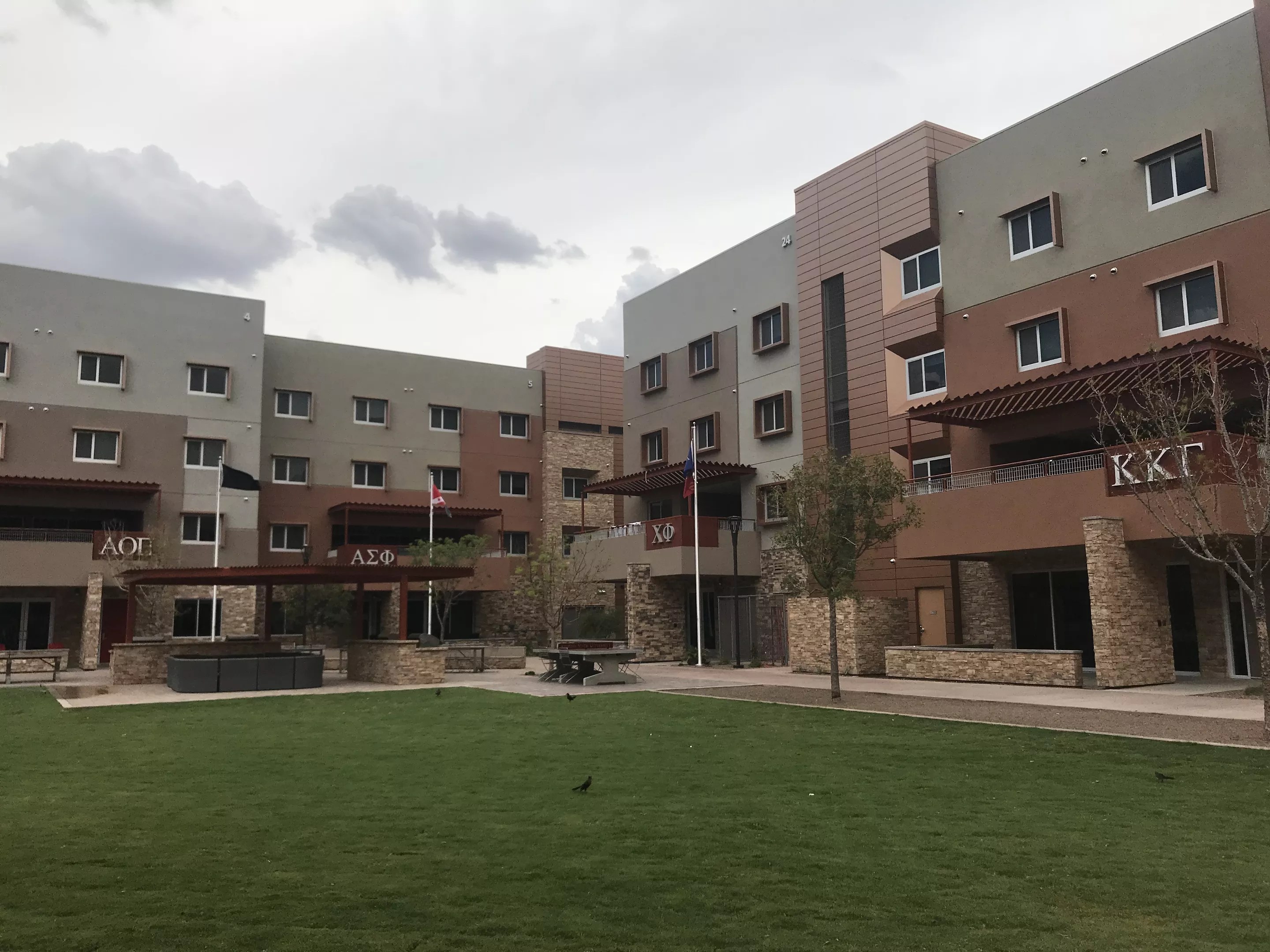
Kelsie Blazier

Audio By Carbonatix
Arizona State University is under investigation by the federal government for sexual discrimination and retaliation in a case that raises questions about how the university protects students who report retaliation from other students.
Earlier this month, the Department of Education’s Office of Civil Rights (OCR) notified ASU that it was opening an investigation for potential Title IX violations in the case. The probe began when a graduate student filed a complaint with the government alleging the university had fostered a “sexually hostile environment” by failing to address reports of retaliation by the student’s lab peers after she reported a professor for harassment.
ASU’s alleged failure to intervene reportedly led the student to switch to work in a lab on another campus, at the expense of her research and access to professional opportunities.
The professor at the center of the initial investigation, Panagiotis Polygerinos, resigned before ASU found him in violation of the university’s Title IX policies. The two students who allegedly committed the subsequent retaliation have not responded to requests for comment.
ASU confirmed the investigation for Phoenix New Times this week, but declined to comment.
Details of the student’s complaint were reported by Inside Higher Ed‘s Colleen Flaherty on October 25. The student’s lawyer, Laura Dunn, showed Flaherty the student’s complaint, according to the article. But because the OCR complaint has opened since then, Dunn declined to show the complaint to New Times, citing the pending investigation, or provide the student’s name, which was also not revealed in Flaherty’s piece. She said Flaherty’s article is accurate. She additionally provided the OCR letter notifying the graduate student of the open investigation, and ASU’s letter of the original Title IX findings.
If the federal government finds the university has violated Title IX, it will seek a remedy with both parties. The graduate student is asking for communal lab equipment to be placed in a neutral location on campus, according to Dunn, plus compensation to ensure continued access to education and to offset costs incurred in the matter.
For the university, the situation is precarious – if the office rules ASU is guilty and cannot secure a remedy, the ultimate penalty is the termination of federal funds that get distributed to ASU. The OCR could also refer the case to the Department of Justice.
Back in January, the Ph.D. student, who worked as a research assistant at ASU’s Bio-Inspired Mechatronics Lab in Mesa, reported the lab’s director to university authorities for alleged sexual harassment and retaliation. Polygerinos went on leave almost immediately, and ASU eventually found him responsible for violating its Title IX policy on statutes of “Prohibition on Discrimination, Harassment, and Retaliation” and “Romantic or Sexual Relationships Between Faculty Members and Students” on August 18, according to the OCR letter.
Yet according to Flaherty’s reporting on the OCR complaint, the student alleges that even after Polygerinos’ departure, retaliation continued. She alleges that two fellow graduate students in the lab, who New Times is declining to name without reviewing the original OCR complaint, began to treat her differently after calling Polygerinos to learn details of his leave. They allegedly stopped speaking to her in the lab, and left her out of work emails and meetings. Her name was left out of a published paper with the two students – though Polygerinos’ was included.
When the student expressed her concerns to the lab’s replacement adviser, she claims that he recommended she resign from her projects with the two students, encouraged her to seek a new adviser, and further advised her to work on a different ASU campus. When he placed the two students in charge of the lab through 2020, despite knowing she would regularly need to use the equipment in the space regardless of the transfer, she filed a formal Title IX report with the university for retaliation, according to Flaherty’s summation of the complaint.
ASU found in July that no one currently working in the lab had committed retaliation. However, the complaint reportedly says that the graduate student believed retaliation would continued after one of the two students requested her name be left out of an application for a patent in September. She filed her OCR complaint shortly after.
A few weeks later, the OCR mailed her lawyer a letter, reviewed by New Times, stating that the agency was opening an investigation into ASU’s possible violation of Title IX, which prohibits discrimination on the basis of sex in educational activities.
“Please note that opening the allegation for investigation in no way implies that we have made a determination with regards to its merits,” the letter states.
Dunn said the student is open to “Facilitated Resolution by Both Parties,” a form of confidential, voluntary mediation that could resolve the matter in a few months.